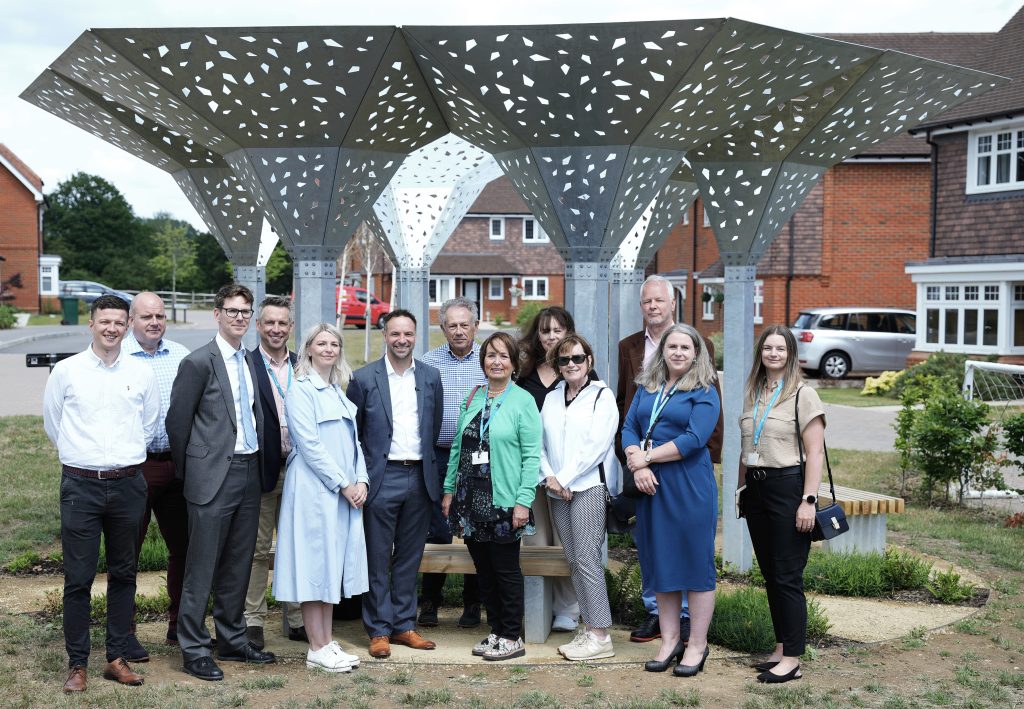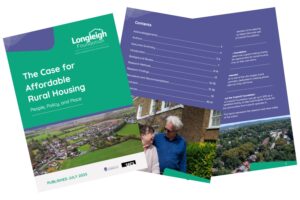Unlocking affordable rural housing in England

A shortage of affordable rural homes
Rural communities across England are facing a growing housing crisis. A shortage of affordable homes is is forcing young families, key workers, and older residents to leave the places they know and love. Social housing has a vital role to play in reversing this trend.
Why we commissioned this research
Longleigh Foundation commissioned new research to barriers to delivering affordable rural homes, and to identify practical solutions.
In partnership with the University of Liverpool, Stonewater, and the Fusion21 Foundation, this project brings together insight from housing professionals, community groups, and local authorities. The findings provide a clear roadmap for unlocking land, reforming planning, boosting funding, and coordinating rural housing policy nationally.
A roadmap for change
Our new report explores how to overcome the barriers to building more affordable homes in rural England. Despite Government plans to build 1.5 million homes by 2030, rural areas remain overlooked in investment and planning strategies. This has serious consequences, including rising homelessness, ageing communities, and increasing difficulties for young people, key workers, and low-income families to stay in their communities.
What’s in the report?
The research, led by experts from the University of Liverpool and UCL, is based on interviews with 21 housing providers, local authorities, community organisations, and policy bodies. It identifies five key barriers:
- Lack of affordable, available land
- Delays and inconsistencies in the planning system
- Gaps in funding and support
- Undervalued roles like Rural Housing Enablers
- A lack of joined-up policy and local capacity
To tackle these challenges, the report proposes a four-point plan:
- Unlocking land: with measures like a Community Right to Buy and incentives for landowners.
- Planning reform: through a Rural Exception Site Planning Passport and increased planning capacity.
- Stable, targeted funding: by reopening the Community Housing Fund and providing long-term support for Rural Housing Enablers.
- Strategic coordination: to prioritise rural housing in devolution deals and regional plans.
Why it matters
Rural housing is not just a social issue, it’s an economic one. Research shows that building affordable homes in rural areas can boost local employment, increase tax revenue, and ease pressure on public services. But without the right infrastructure, funding, and political commitment, progress will remain limited.
As Dr Tom Moore from the University of Liverpool says:
“This research highlights the deep-rooted structural barriers that have hindered rural housing for decades. But it also offers real solutions.”
Explore the research
- Read the report and its recommendations
- Read the official announcement
- Aileen’s reflections on the findings
- University experts lead new rural housing crisis report
- The potential of rural affordable housing remains untapped
- A roadmap for change
- Report sets out roadmap for cracking rural housing crisis
- Unlocking affordable rural housing in England
Contact us
To discuss the research or to arrange interviews:
Aileen Edmunds, Chief Executive, Longleigh Foundation – aileen@longleigh.org
Dr Tom Moore, Senior Lecturer in Housing and Planning, University of Liverpool – thomas.moore@liverpool.ac.uk



